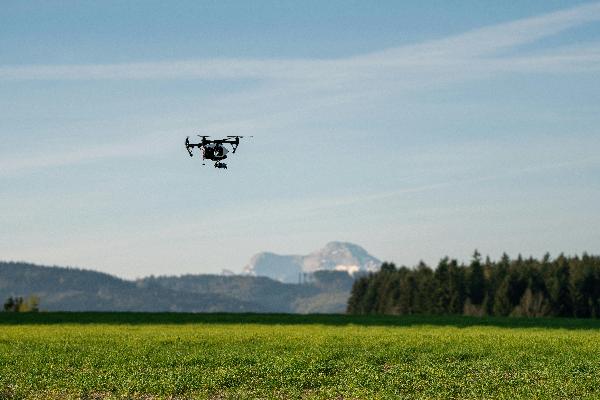Precision Agriculture in India: Bridging Tradition with Technology

Introduction
In the ever-evolving landscape of Indian agriculture, precision agriculture stands out as a revolutionary approach that bridges the gap between traditional farming methods and modern technology. By incorporating tools such as Geographic Information Systems (GIS), Global Positioning Systems (GPS), and remote sensing technologies, precision agriculture enhances productivity, conserves resources, and promotes sustainable farming practices. As India grapples with challenges like climate change, resource depletion, and the need to feed a growing population, precision agriculture emerges as a crucial innovation that can help secure the future of farming.
The Limitations of Traditional Farming
Traditional farming practices in India have served the country well for centuries, but they are increasingly inadequate in addressing the demands of the 21st century. Issues such as erratic weather patterns, diminishing water resources, and soil degradation are making it difficult for farmers to maintain their livelihoods. The overuse of chemical fertilizers and pesticides has led to soil depletion and environmental pollution, further exacerbating the challenges faced by Indian agriculture. Additionally, the reliance on manual labor and outdated techniques limits the potential for increased productivity and profitability. These factors highlight the need for a more precise, technology-driven approach to farming, which precision agriculture offers.
The Technological Backbone of Precision Agriculture
Precision agriculture is powered by a suite of advanced technologies that enable farmers to optimize their operations and make data-driven decisions. Geographic Information Systems (GIS) provide detailed maps and analyses of land characteristics, including soil health, topography, and climatic conditions. This information is vital for making informed decisions about crop selection, planting strategies, and resource management. Global Positioning Systems (GPS) ensure that farming operations are carried out with precision, from planting to harvesting. Remote sensing technologies, such as drones and satellite imagery, provide real-time data on crop health, soil moisture levels, and potential pest infestations, allowing farmers to take timely action to protect their crops.
Data-Driven Decision Making in Agriculture
One of the key benefits of precision agriculture is its ability to turn data into actionable insights. By collecting and analyzing data from various sources, farmers can gain a deeper understanding of their fields and make informed decisions that optimize productivity and reduce waste. Predictive analytics, for instance, can help farmers forecast crop yields, identify potential disease outbreaks, and anticipate market trends. This allows farmers to plan their operations more effectively, mitigate risks, and maximize their returns. In this way, precision agriculture empowers farmers to move from reactive to proactive farming, addressing challenges before they become serious issues.
Challenges to Adoption in the Indian Context
While the benefits of precision agriculture are clear, its adoption in India is not without challenges. The high cost of precision agriculture technologies is a significant barrier, particularly for small-scale farmers who may struggle to afford such investments. Additionally, there is a lack of awareness and understanding of precision agriculture among many farmers. This knowledge gap is compounded by a shortage of training and education opportunities. Connectivity issues in rural areas also pose a challenge, as reliable internet access is essential for the effective use of many precision agriculture tools.
To overcome these challenges, a concerted effort is needed from all stakeholders, including the government, private sector, and educational institutions. Government subsidies and support programs can help lower the cost of precision agriculture technologies, making them more accessible to farmers. Training programs and extension services can educate farmers on the benefits of precision agriculture and provide them with the skills they need to implement these technologies effectively. Improving rural connectivity infrastructure will also be crucial in ensuring that all farmers can take advantage of precision agriculture.
The Future of Precision Agriculture in India
As technology continues to advance, the future of precision agriculture in India looks promising. Emerging technologies such as Artificial Intelligence (AI) and Machine Learning (ML) have the potential to further enhance the capabilities of precision agriculture. AI and ML can analyze large datasets to provide predictive insights and automate decision-making processes, helping farmers optimize their operations and increase their profitability. Blockchain technology could also play a significant role in improving transparency and traceability in the agricultural supply chain, ensuring that food products are safe, high-quality, and ethically sourced.
Conclusion
Precision agriculture represents a significant leap forward for Indian farming, offering a way to integrate traditional knowledge with modern technology to create a more sustainable and productive agricultural system. While there are challenges to its widespread adoption, the potential benefits of precision agriculture are too great to ignore. With the right support from the government, private sector, and educational institutions, precision agriculture can become a key driver of agricultural development in India, helping farmers to overcome the challenges they face and secure a prosperous future. As India continues to grow and evolve, precision agriculture will play an increasingly important role in ensuring that the agricultural sector remains resilient, productive, and capable of meeting the needs of the nation.
Note: IndiBlogHub features both user-submitted and editorial content. We do not verify third-party contributions. Read our Disclaimer and Privacy Policyfor details.







